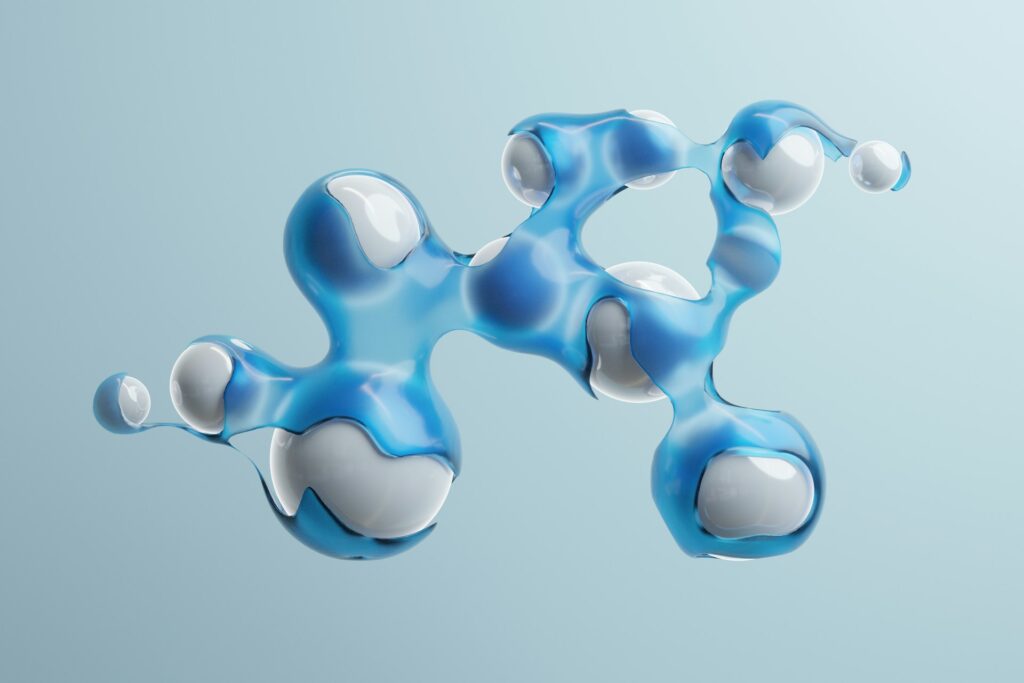Researchers at the University of Delaware, led by Professor William Chain, have developed a cost-effective method to synthesize a molecule originally found in guava plants that shows promise against liver-related cancers. This advance has the potential to provide a scalable and affordable pathway for developing new treatments for one of the deadliest cancers worldwide.
O’Grady, L. P., Achtenhagen, M., Wisthoff, M. F., Lewis, R. S., Pfeifer, K., Zheng, W., Martin, M. I., Yap, G. P. A., & Chain, W. J. (2025). Enantioselective Total Synthesis of (–)‐Psiguadial A. Angewandte Chemie, 137(30). https://doi.org/10.1002/ange.202506537
The molecule, known as (–)-psiguadial A, has previously been shown to inhibit the growth of liver cancer cells, but obtaining sufficient quantities from natural sources was a major limitation. Guava plants naturally produce this molecule in small amounts, making large-scale extraction impractical. Professor Chain’s team addressed this challenge by designing a chemical synthesis route using widely available reagents. This approach allows the molecule to be produced in laboratories without relying on plant extraction, which could significantly reduce the cost and improve accessibility for research and therapeutic applications.
Professor William Chain, from University of Delaware stated,
“The majority of clinically approved medicines are either made from a natural product or are based on one. But there aren’t enough natural resources to make enough treatments. Now chemists will be able to take our manuscripts and basically follow our ‘recipe’ and they can make it themselves.”
The research, provides a step-by-step methodology for synthesizing (–)-psiguadial A, offering a valuable resource for chemists and pharmaceutical researchers worldwide. By providing a reproducible and low-cost synthesis route, the study removes a major barrier to exploring this molecule’s therapeutic potential.
Liam O’Grady, a doctoral student in Chain’s lab and the first author of the study, highlighted the collaborative and exploratory nature of the work: “We are the first ones to pave that road, and other people can repave it any which way. Find the shortcuts if they have to. But since we entered into that unknown territory, I think we helped shed light on this unknown pathway that can get us there.”
Liver and bile duct cancers remain a significant global health concern, with rising incidence rates. In the United States alone, more than 42,000 people were projected to be diagnosed with liver cancer in 2025, and late-stage survival rates remain under 15%. The economic and human burden of these cancers underscores the importance of developing new and accessible treatment options.
The University of Delaware team is now collaborating with the National Cancer Institute to investigate whether (–)-psiguadial A may also be effective against other types of cancers, and to advance preclinical studies for potential therapeutic applications. This work exemplifies how chemical synthesis and natural-product research can intersect to provide practical solutions for pressing medical challenges.
By making a naturally occurring, biologically active molecule available through laboratory synthesis, Professor Chain and his team have not only advanced liver cancer research but also set a precedent for accessible, scalable drug discovery. Their work highlights the importance of combining innovative chemistry with a global perspective on health challenges, ensuring that promising natural compounds can reach patients and researchers worldwide.
This development underscores the role of nature-inspired drug discovery and collaborative scientific approaches in addressing some of the most difficult diseases faced by humanity, and it opens the door for further exploration of plant-derived molecules as therapeutics.

Adrian graduated with a Masters Degree (1st Class Honours) in Chemical Engineering from Chester University along with Harris. His master’s research aimed to develop a standardadised clean water oxygenation transfer procedure to test bubble diffusers that are currently used in the wastewater industry commercial market. He has also undergone placments in both US and China primarely focused within the R&D department and is an associate member of the Institute of Chemical Engineers (IChemE).



